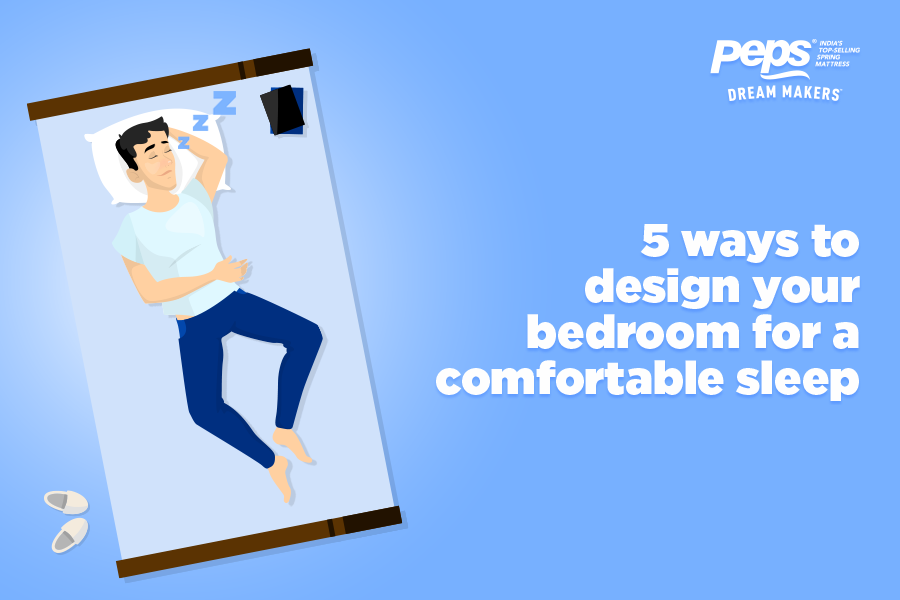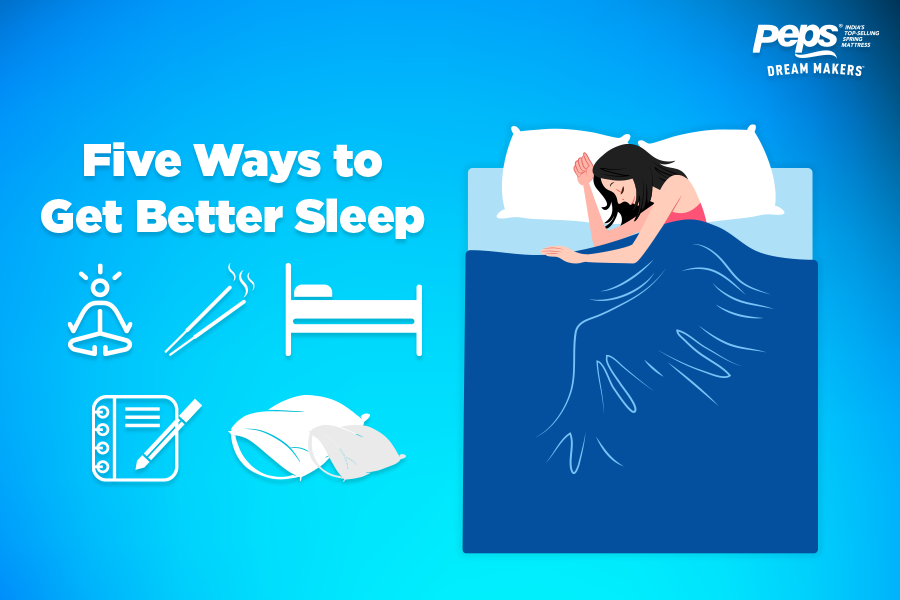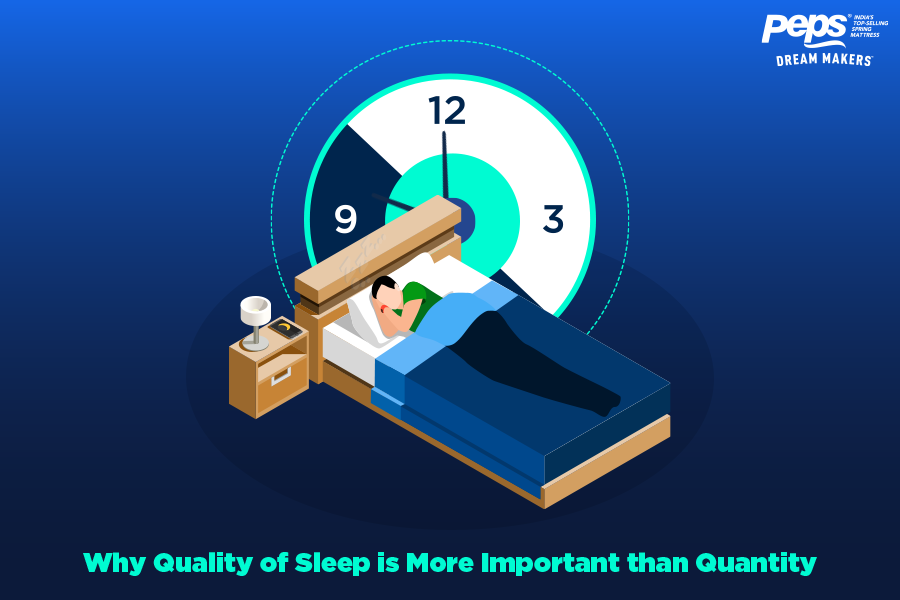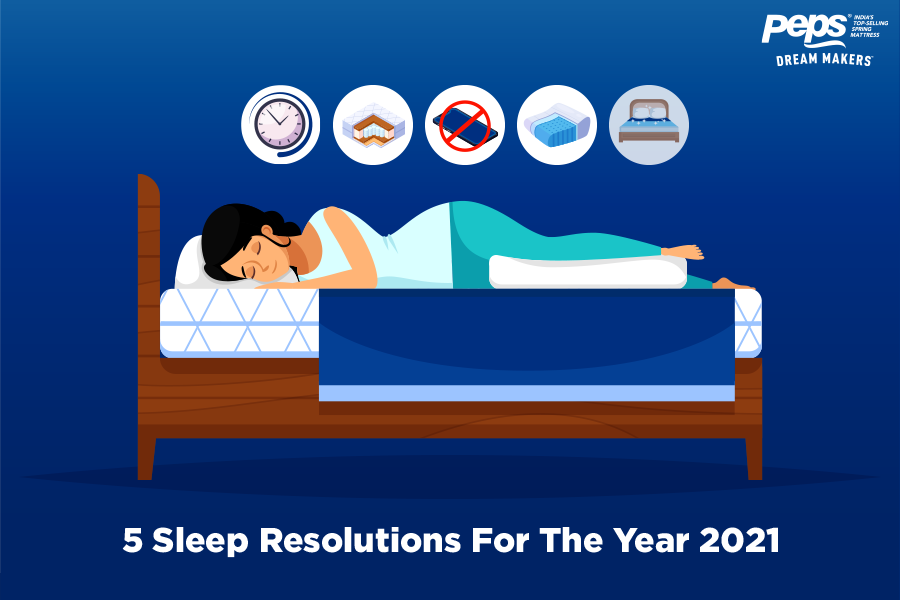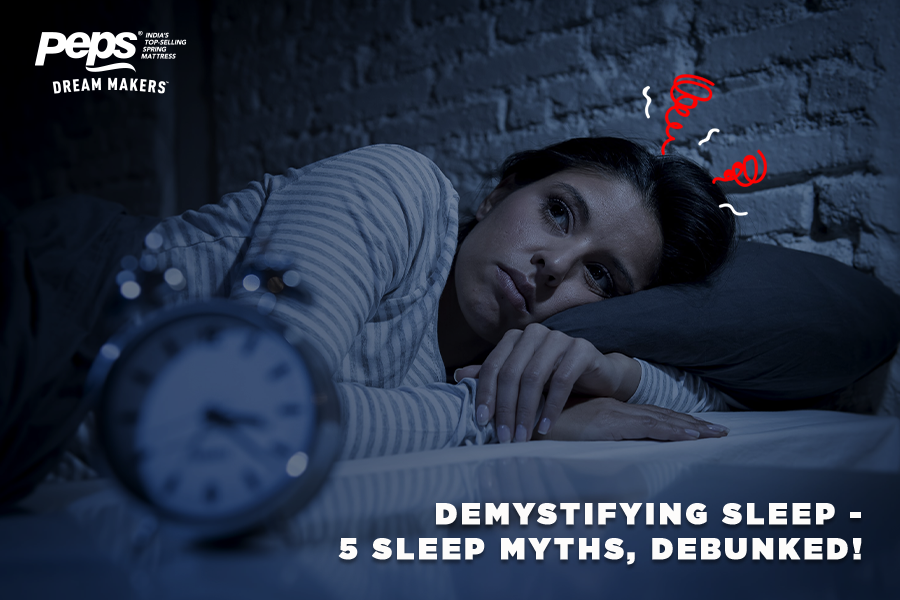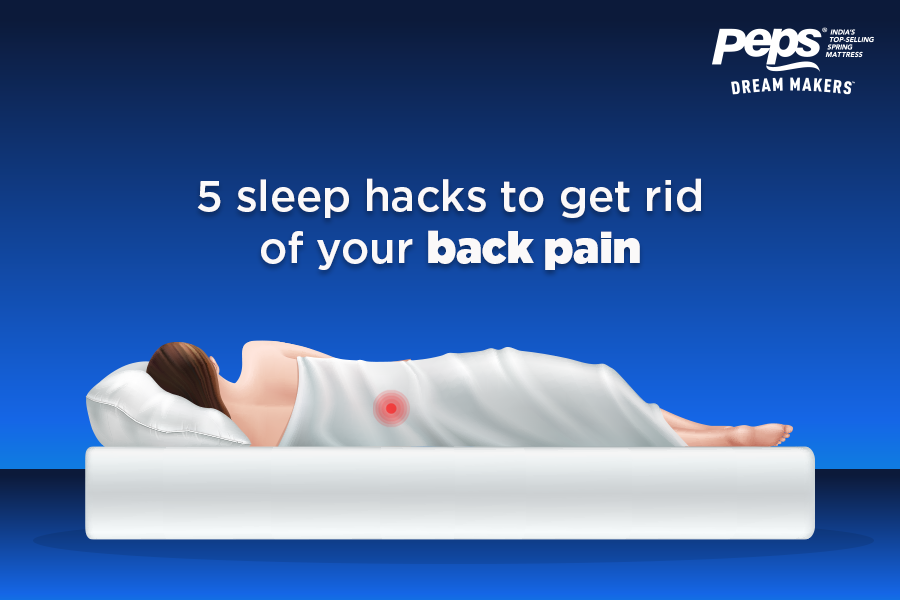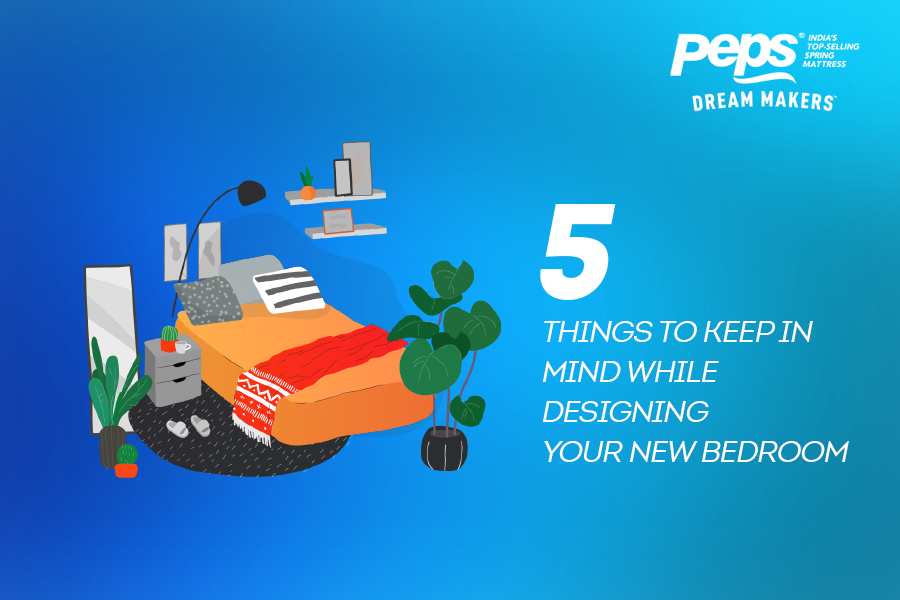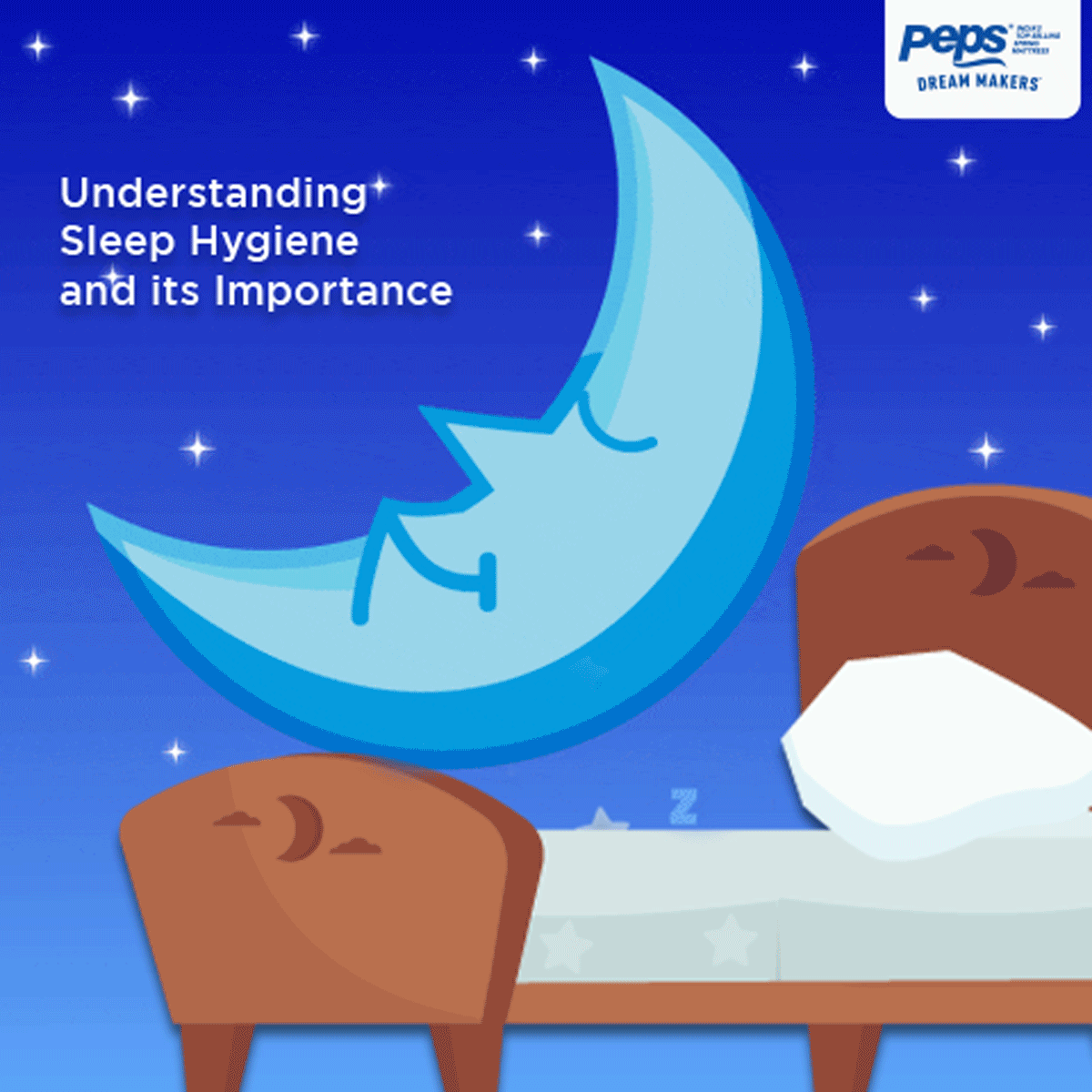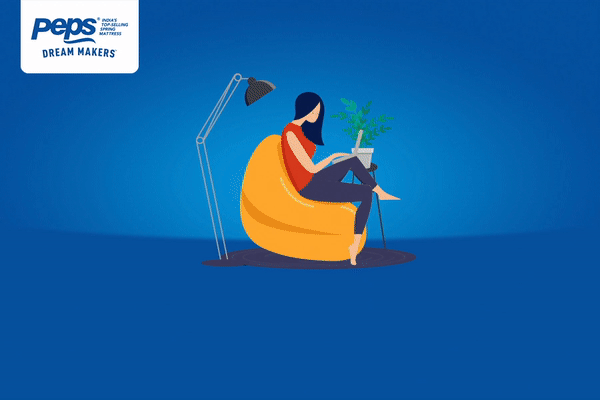
The bedroom is a sanctuary for sleep and relaxation, and the feeling of walking into the right one after a long day is unmatched. An undisturbed and restorative night’s sleep involves the combination of a range of factors, including your bedtime routine, sleep timing and of course, the sleep setting itself. Bedrooms are often a primary cause for night-time tossing and turning, and a few tweaks could magically improve your sleep. Here are five ways in which you can optimise your room for the best night’s sleep.
Clear the Clutter
Does your night-stand look like a storage cabinet? Well, it might be time to declutter your room to ensure that you sleep well and wake up refreshed. Visual clutter contributes to stress and anxiety, which can make it difficult to relax and inhibit sleep. This involves organising the space, clearing out stacks of books or paper and removing unnecessary items of furniture. Spending a few minutes every day to clear up the clutter can prevent a mess from building up, and ensure that your room is always ready to sleep in.
Choose Calming Colours
The colour palette of your room can have a significant influence on your ability to wind down for the night. Choosing colours that are conducive to sleep can help you fall asleep quicker and sleep better throughout the night. Light and muted colours are generally ideal for bedrooms, and cool colours such as light blue, grey or lavender are considered to be the best bet for comfortable sleep. A survey of 2,000 people found that individuals with blue bedrooms averaged the most amount of sleep, followed by moss green, pale yellow and silver. Thus, painting your room does not just involve picking your favourite colours, but also ensuring that these colours are conducive for sleep.
Pick the Perfect Mattress and Bedding
The centerpiece of your bedroom is the bed itself, and picking the right mattress is the first step towards building a bedroom for restful sleep. The right mattress should combine support with comfort, and have enough space for you to comfortably move around. When picking a mattress, it is important to cater it to your sleeping position, age, weight and sleep problems. Peps offers a wide range of comfortable mattresses, each with unique properties for your individual sleep needs. Aside from the mattress itself, it is important to invest in the right bedding, pillows and sleep accessories. Crisp, clean sheets play an important role in helping you relax. Moreover, a supportive pillow, such as Peps Neck Guard, moulds itself to the shape of your neck and relieves muscular compression. The right pillow keeps your head and spine perfectly aligned to alleviate pain. By building a bed that’s right for you, you are setting yourself up for a night of restful sleep and an energized morning.
Soothe your Senses
Falling asleep involves creating a sleep-inducing atmosphere for all your senses, from sight to smell. Light acts as an important cue for your body’s internal clock, and it is important to minimise the light in your bedroom through various means, such as using black-out curtains or a low-temperature bedside lamp. The age-old adage of ‘silence is golden’ holds particularly true in the context of sleep, and noise can act as a barrier to a night of rest and rejuvenation. White noise machines or speakers with comforting music can help drown out any unpleasant noises. Finally, having relaxing scents in your bedroom can help promote relaxation and sound sleep. By designing your bedroom to soothe your senses, you are all set to fall asleep, stay asleep and wake up refreshed!
Eliminate the Electronics
Electronics are definitely the antithesis of great sleep, and eliminating electronics from your bedtime routine is key to ensuring an uninterrupted night’s sleep. Research indicates that screen time before bed exposes you to harsh blue light, that disrupts your body’s circadian rhythm and activates your mind. This makes winding down an almost impossible feat, and stands in the way of a good night’s sleep. Hiding electronics can prevent you from feeling tempted to scroll through Instagram ‘one last time’ before you sleep. As they say: out of sight, out of mind!
From picturing your ideal bedroom to actually creating it, the process of designing a dream bedroom is both exciting and challenging. The first and foremost priority when engaging in this process is to ensure that your bedroom is built to give you the best sleep you can get. By following these tips, you can ensure that your bedroom is a tool for great nights and fresh mornings!

